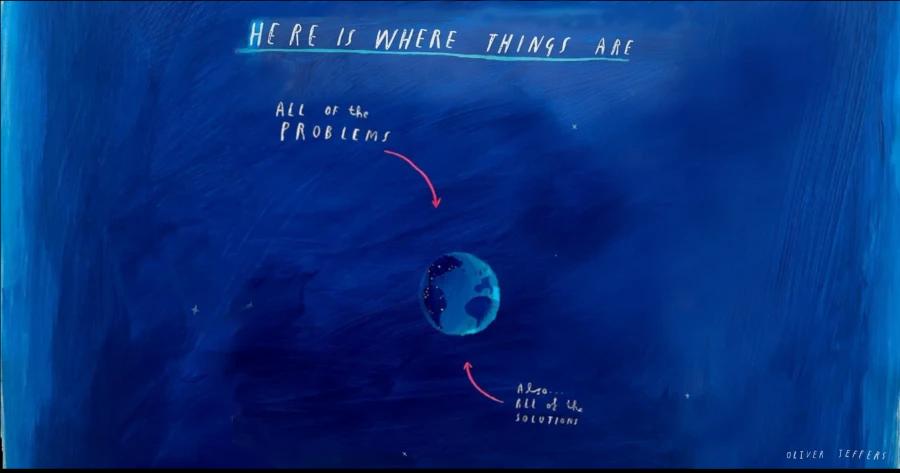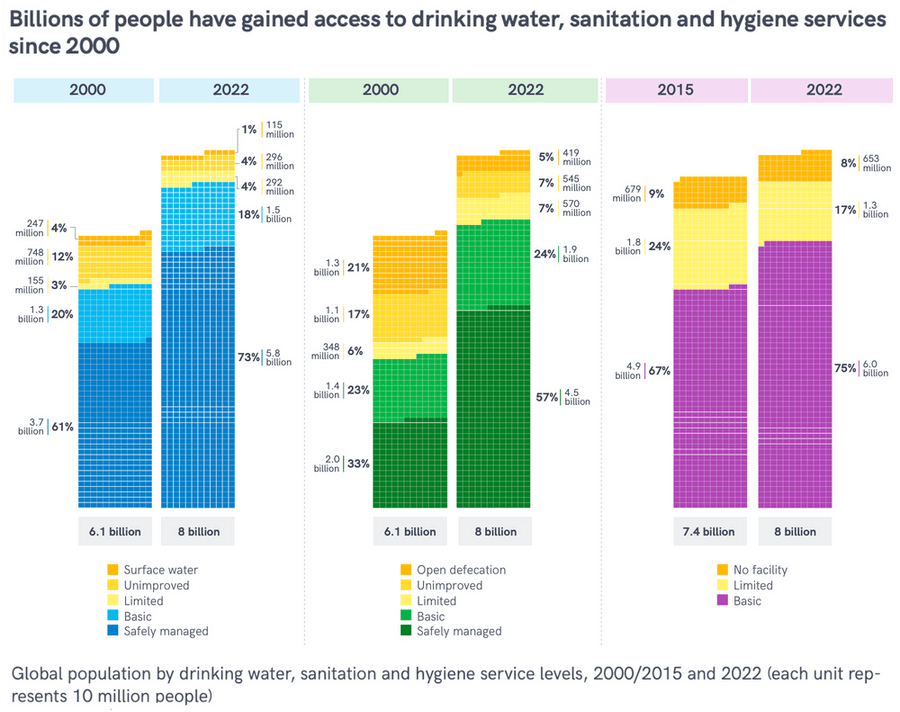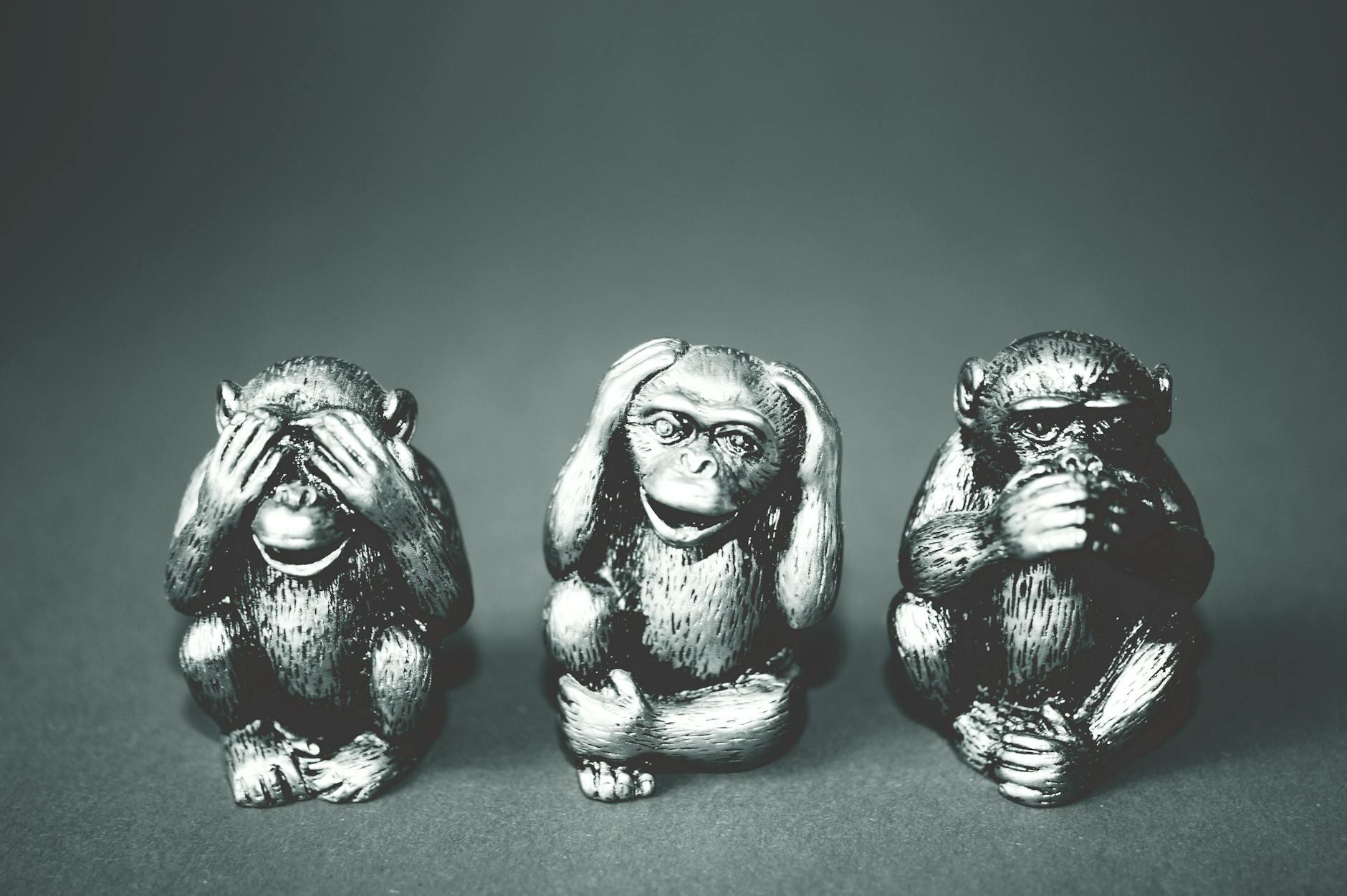The Seven Laws of Pessimism
Curated from: quillette.com
Ideas, facts & insights covering these topics:
18 ideas
·2.08K reads
14
Explore the World's Best Ideas
Join today and uncover 100+ curated journeys from 50+ topics. Unlock access to our mobile app with extensive features.
The Best Year in Human History?
- Can we argue 2023 was one of our best years yet? Looking back, it seems so.
- Since the turn of the century, each year (excluding the pandemic) has brought affluence, safety, and good health to more and more people.
- Despite the ongoing tragedies in various countries like Ukraine, Gaza, Sudan, and Yemen, statistics show that life is actually better than it has ever been.
- However, this positive reality seems to be overshadowed by the constant influx of negative news in the media.
- Hopefully, this list will work as an antidote whenever excessive news consumption makes you feel despondent.
19
210 reads
1. The Law of the Invisibility of Good News:
Progress happens gradually and imperceptibly, while regress happens all at once and immediately grabs our attention.
- Breaking news often involves things breaking down (an earthquake, suicide bomber attack, stock market crash, tsunami, political coup, or oil spill), as the second law of thermodynamics dictates that:
- the universe tends towards disorder. It is much easier to destroy than to build.
- Human progress is dependent on incremental improvements afforded by infrastructure that quietly hums away in the background, invisible until something goes wrong.
20
178 reads
2. The Law of The Velocity of Bad News:
Nothing travels faster than the speed of light, except bad news.
- In today's world of instant communication, bad news spreads faster than ever.
- Our brains, wired to focus on the sensational, overestimate the likelihood of such events.
- Terrorists exploit this by targeting famous locations for maximum media coverage, instilling fear in millions.
- While some suggest censoring news of attacks, public demand drives coverage.
- Ultimately, our fascination with horrific news reflects human nature's curiosity, rather than perverse tendencies.
19
144 reads
“Nothing travels faster than the speed of light, with the possible exception of bad news, which obeys its own special laws.”
Excerpt from :The Hitchhiker’s Guide to the Galaxy
DOUGLAS ADAMS
20
131 reads
3. The Law of Rubbernecking:
The more gruesome the news, the more we lap it up.
- Humans are naturally drawn to negative and alarming events, a behavior rooted in evolutionary instincts.
- "rubbernecking," is a tendency where people crane their necks to observe accidents, reflects an evolutionary predisposition to pay attention to potential threats.
- Evolution programmed us to prioritize bad news, termed "dread risk," as it historically had more significant fitness consequences.
- One momentary lapse of attention in the ancestral environment could lead to dire outcomes like falling off a cliff or being attacked by predators.
19
124 reads
- This inclination persists today, evident in the higher engagement with negative headlines in news stories.
- Even during peaceful times, people are captivated by prophets of doom, as anticipating the worst has historically been admired.
- This primal response reminds individuals to stay vigilant in the face of potential dangers, emphasizing the evolutionary importance of being alert to negative information.
19
98 reads
“I have observed that not the man who hopes, when others despair, but the man who despairs when others hope, is admired by a large class of persons as a sage.”
JOHN STUART MILL
23
112 reads
4. The Law of Conservation of Outrage:
No matter how much progress the world is achieving, the total amount of outrage remains constant.
- As societies become safer and more prosperous, people tend to raise their standards for what is considered safe or prosperous.
- This leads to a paradox where despite fewer disasters and progress, individuals may feel the world is worsening.
- This phenomenon is compared to the Shepard tone auditory illusion, and it's linked to our brains' tendency to expand concepts when instances decrease.
20
100 reads
- The conservation principle applies to various domains, influencing perception and even causing people to find new reasons to be outraged.
- The challenge lies in recognizing this pattern and appreciating the progress made, as highlighted in Steven Pinker's work on the decrease in violence over the centuries.
19
89 reads
“No charity ever raised money for its cause by saying things are getting better.” (The Rational Optimist)
MATT RIDLEY
23
102 reads
5. The Law of Awful Attraction:
If you don’t find bad news, bad news will find you.
- New age beliefs like the Law of Attraction suggest positive thoughts attract good outcomes, while negative thoughts invite trouble.
- Though this theory doesn't always hold in real life, social media operates differently.
- Mathematician Spencer Greenberg notes that social media algorithms are designed to cater to our interests. If we engage with cute puppies or shocking news, the algorithm provides more of the same.
- This creates a cycle where our biases and impulses are reinforced, even if we're unaware.
20
90 reads
6. The Law of Self-Effacing Solutions:
Once a solution has been achieved, people forget about the original problem (and only see further problems).
- Progress often masks its own challenges, leading us to overlook the severity of original problems.
- Every solution creates new issues, but if they're less severe, it's deemed progress.
- Chemotherapy, though harsh, is far better than untreated cancer. Similarly, calls to "defund the police" overlook their role in reducing violence.
- Lockdowns during Covid caused hardship, but they prevented greater suffering by curbing the virus's spread.
20
88 reads
- Yet, their ugliness led to blame for pandemic woes. This pattern, dubbed the "ugly problem fallacy," hides the benefits of solutions.
- It applies to various issues like prisons, vaccines, and consumerism.
- By remembering the gravity of initial problems, we can better appreciate imperfect solutions' progress.
19
80 reads
7. The Law of Disinfecting Sunlight:
The freer a society, the more ugly things will surface.
- In liberal democracies, the more complaints about human rights violations, the better protected those rights are likely to be, according to "Moynihan's Law."
- This is because in free societies, people can freely voice their grievances.
- Activists sometimes inadvertently give the impression that things are getting worse when they're actually just becoming more visible.
20
86 reads
- Ayaan Hirsi Ali notes that those who've always had freedom may take it for granted.
- Criticism in tolerant societies isn't met with retaliation, unlike in dictatorships where dissent is squashed.
- Therefore, if everyone praises the government and claims progress, it's likely a sign of oppression, not true freedom.
20
83 reads
“You grew up in freedom, and you can spit on freedom because you don’t know what it is not to have freedom.”
AYAAN HIRSI ALI
21
86 reads
Conclusion: We Need More “Idiots”
- Pessimism often gets mistaken for intelligence, but believing in progress takes courage.
- While pessimists sound wise sticking to the known, progress relies on optimism and innovation.
- Trusting in humanity's ability to overcome challenges is crucial, even if it means risking looking foolish.
- Progress isn't guaranteed; it requires seeing through pessimistic thinking and believing in a better future.
20
86 reads
IDEAS CURATED BY
Content Curator | Absurdist | Amateur Gamer | Failed musician | Successful pessimist | Pianist |
CURATOR'S NOTE
If life is better than ever before, why does the world seem so depressing?
“
Similar ideas
Read & Learn
20x Faster
without
deepstash
with
deepstash
with
deepstash
Personalized microlearning
—
100+ Learning Journeys
—
Access to 200,000+ ideas
—
Access to the mobile app
—
Unlimited idea saving
—
—
Unlimited history
—
—
Unlimited listening to ideas
—
—
Downloading & offline access
—
—
Supercharge your mind with one idea per day
Enter your email and spend 1 minute every day to learn something new.
I agree to receive email updates














